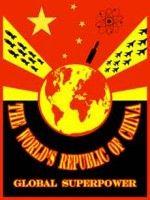The international climate is changing. “This century is definitely going to be Asia’s century, and we better get used to it,” said Julian Gaspar, a Texas A&M professor and director of the Center for International Business Studies. “The last century, as you know, was the American century; the century before that was the British century; and in my opinion this century is going to be Asia’s century.” It is a fragile situation, and the United States should avoid costly errors during this seemingly inevitable transition.
The rapid development in China and the looming economic woes facing the United States indicate that the United States’ economic dominance will soon be a thing of the past. China’s gross domestic product has been growing by 9 percent every year. The United States lags behind, growing a mere 3 percent, according the CIA World Factbook.
India’s economy is also growing at a faster rate than the United States’. Unlike China, however, India does not aspire to become a superpower, said Arun Surendran, an engineering graduate student from India. While India is making grand leaps economically, it has little desire to dominate the world militarily.
“The world has periodically witnessed the rise and fall of powerhouses,” Surendran said.
Gaspar says China will surpass the United States within a few decades, and that the global economy will be dominated by Asia, rather than the West.
“By 2020, the world’s largest economy is going to be China. Second will be the United States, third is going to be India, fourth is Japan.” Gaspar said.
The United States is cutting taxes while dramatically increasing spending. The external debt is nearly $9 trillion, which is more than 70 percent of the GDP. Increasing trade and budget deficits are becoming more serious. The United States consumes 20 million barrels of oil every day. The majority of this oil comes from foreign sources, and it will be impossible to sustain such consumption as the demand for oil skyrockets in India and China.
The United States must approach this situation carefully. First, it is vital that genuine free trade is promoted. Pseudo-free trade agreements, which only cater to American corporations, will prove inept. International cooperation will become even more important as the global market becomes more diverse.
It is time to abandon the idea that the world needs one country to sit on the throne. The United States’ role as the world police force must fade. “Hopefully, we won’t get into other misadventures like Iraq, so we can manage our economy a lot better,” Gaspar said.
Such endeavors spread the United States too thin, and there is a possibility that the new superpowers will not tolerate such conduct.
The prospect of China determining affairs in the United States is unappealing. While it has made many reforms in the right direction, it is still a communist state. What would it be like if the world’s greatest superpower did not allow its own people to look up the Tiananmen Square Massacre on Google?
Cooperation is to the world what democracy is to a nation. Dominant superpowers are akin to tyranny. If the United Nations proves incapable of meaningful cooperation, then a new body must be established. Some neo-conservatives describe themselves as “realists,” and they dismiss international cooperation as a utopian fantasy. They argue that the world needs a rule-giver. Perhaps they will realize their folly when the United States no longer sits in the position of power.
Red dawn
April 18, 2006

0
Donate to The Battalion
Your donation will support the student journalists of Texas A&M University - College Station. Your contribution will allow us to purchase equipment and cover our annual website hosting costs.
More to Discover








